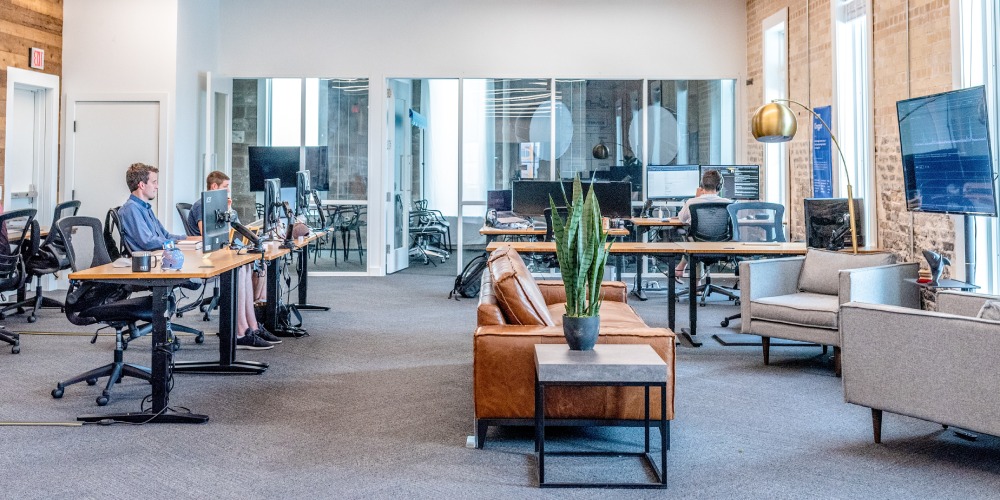With the arrival of the Fourth Industrial Revolution, the idea that organizations must change is all-pervasive. However, the challenges of digital transformation are, first and foremost, a matter of people. According to PwC Chile, they are the key to cultural transformation in times of new technologies.

- People, not technology
The fast-moving technological revolution we have experienced over the past ten years and the advent of the Fourth Industrial Revolution mean that the idea that organizations must change, and that this transformation is digital, has become all-pervasive. Counterintuitively, however, this enormous process of change is not implemented using technology but, rather, with people. In the world of the future, in contrast to the case of industrial improvements, the focus is on people and their capabilities and our ability to move them towards things digital, which will be decisive for our success.
These processes are associated with what we refer to as Cultural Transformation, efforts that seek to mobilize our current organizational culture (the way we do things) towards the culture we need for the future. As many organizations know, cultural change is a difficult road; it does not suffice to copy the way things are done in other companies. We must mobilize our culture to align it with our new business objectives.
- Work with and within the current culture
Culture is a continuous, self-sustained and, often, invisible phenomenon. In order to work from and with our reality, we must first understand the core features of our culture and even subcultures (our cultural fingerprint). Culture is our ally. Although it may seem to hold us back at the beginning, it is essential to understand its features and mobilize only towards what we really need to change, thereby saving effort and energy.
- Change behavior, not thinking
As any person who has tried to lose weight will know, this is very difficult if we are constantly thinking about the diet. It is more effective (and safer in the long term) to focus our efforts on changing our behavior by, for example, eating more frequently. Behavior is powerful because it has the capacity to bring about changes in performance, and the culture of an organization is a bridge between our current culture and our aspirations.
- Focus on critical behaviors
In our experience, we have found that it is easier to act differently, than to think differently. Critical behaviors are highly visible motivational actions, associated with our business goals (which reinforce performance), that reflect what we want to install as a new culture. Really listening to others - and customers - and generating continuous spaces for discussion between teams or spending time so that teams can review customers’ variable needs are examples of critical behaviors that we have supported in different projects of cultural evolution.
- Relate behaviors to business objectives
Critical behaviors do not exist in a vacuum nor are they sustained by good intentions; they must be clearly associated with our goals and objectives. Establishing the way in which these new actions “move the needle” and permit improvements in the baseline (to follow the example of a diet) is central if people are to experience behaviors as important, rather than merely a passing and often irrelevant idea of management.
- Deploy informal leaders... but don’t exclude formal leaders
We have already seen that culture is not changed by thinking, but through actions. Opinion leaders, internal influencers or agents of change are all capable of influencing and energizing people without holding positions of formal leadership in the structure. The ability of these leaders to teach, share, connect and change opinions and, even more importantly, people’s behaviors is one of the most robust pillars on which we can build an evolutive culture.
Taking advantage of informal leaders goes hand-in-hand with promoting concrete and continuous action on the part of the formal leaders who exist in the organization. This is a particularly sensitive point since people’s experience of their company and organization depends on their boss. A boss who does not believe in the new culture will rapidly erode the transformation’s chances of success. Aligning, motivating and convincing the leadership structure is as essential an element in this process as defining a new production technology.
- Show results quickly
Cultural change takes time so it is important to get off to a fast start. Viralizing new behaviors through social networks, showing the difference in results and relating the work of formal and informal leaders with the goals and objectives achieved are vital if people are to maintain momentum in an effort that will allow us to be prepared for the future.
To find out more about the Fourth Industrial Revolution and its impact on organizations, see this article.
Source: El Mercurio



%2017.11.51.png)

